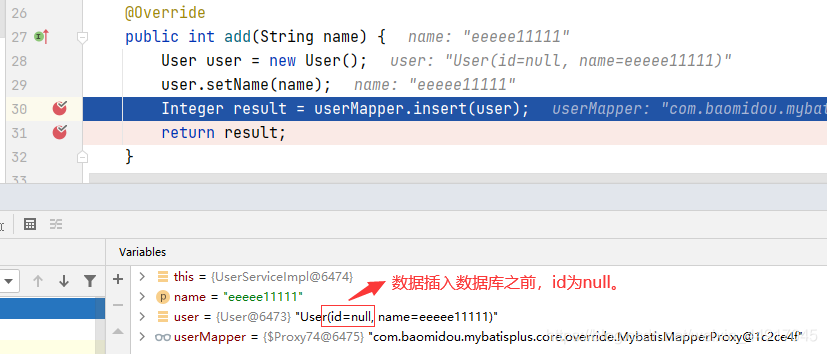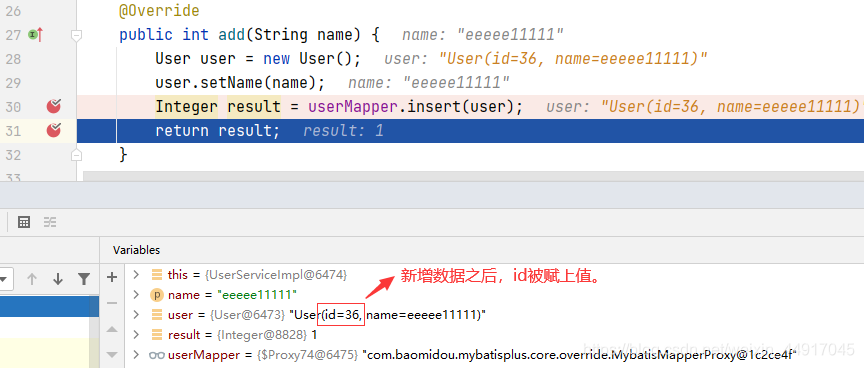今天小编给大家分享一下Mybatis-Plus如何获取自增列id的相关知识点,内容详细,逻辑清晰,相信大部分人都还太了解这方面的知识,所以分享这篇文章给大家参考一下,希望大家阅读完这篇文章后有所收获,下面我们一起来了解一下吧。
新增获取自增列id
1、实体类定义
注意:@TableId(value = “id”, type = IdType.AUTO)注解中的 type = IdType.AUTO 属性标注主键为自增策略。
import lombok.Data;import com.baomidou.mybatisplus.annotation.IdType;import com.baomidou.mybatisplus.annotation.TableId;import com.baomidou.mybatisplus.annotation.TableName;import com.baomidou.mybatisplus.annotation.TableField;@Data@TableName("users")public class User { @TableId(value = "id", type = IdType.AUTO) private Integer id; @TableField("`name`") private String name;}2、解决办法
方法一:
使用框架自带的insert方法。
int insert(T entity);方法二:
@Insert("insert into users(`name`) values(#{user.name})")@Options(useGeneratedKeys = true, keyProperty = "id", keyColumn = "id")Integer add(@Param("user") User user);方法三:
@InsertProvider(type = UserMapperProvider.class, method = "add")@Options(useGeneratedKeys = true, keyProperty = "id", keyColumn = "id")Integer add(@Param("user") User user);UserMapperProvider类
public class UserMapperProvider { public String add(User user) { return "insert into users(id, `name`) values(#{user.id},#{user.name})"; }}3、调用方法获取id说明
方法调用前:

方法调用后:

解决id自增方法
在pojo文件中id加入
@TableId(value = “id”,type = IdType.AUTO)
application.yml中加入:
global-config: db-config: id-type: auto以上就是“Mybatis-Plus如何获取自增列id”这篇文章的所有内容,感谢各位的阅读!相信大家阅读完这篇文章都有很大的收获,小编每天都会为大家更新不同的知识,如果还想学习更多的知识,请关注编程网行业资讯频道。




